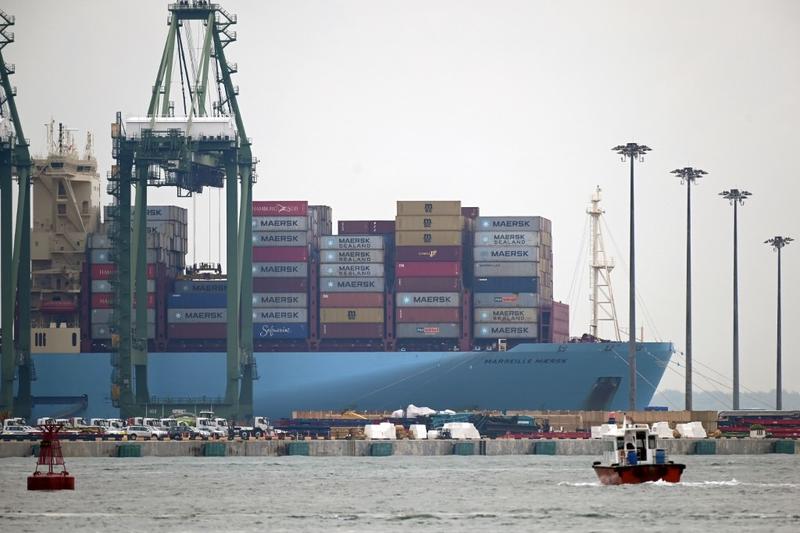 A full load vessel is seen docked at a container port terminal in Singapore on Oct 17, 2019. (ROSLAN RAHMAN / AFP)
A full load vessel is seen docked at a container port terminal in Singapore on Oct 17, 2019. (ROSLAN RAHMAN / AFP)
BANGKOK - The COVID-19 pandemic may cost Asia-Pacific 0.8 percent of the region's gross domestic product, an estimated US$172 billion, due to a massive drop in global demand for their exports alone, according to a report issued by the UN Economic and Social Commission for Asia and the Pacific (ESCAP) on Wednesday.
According to the report, titled "Economic and Social Survey of Asia and the Pacific 2020", the drop in demand for goods will come from Asia-Pacific's major trading partners, including the United States and the European Union, both of which are regions severely hit by the COVID-19 outbreak.
Vietnam, Mongolia, Cambodia and Singapore are countries most impacted by the decline in demand as they rely heavily on trade with the pandemic-hit countries, according to UNESCAP
ALSO READ: Asian firms rush to meet US$69b in 2nd-quarter debt refinancing
"Weakened demand from these markets could impair the region's trade significantly ... Preliminary estimates by ESCAP suggest that the region's GDP could experience declines of 0.6-0.8 percent (valued at US$132 billion to US$172 billion) as a direct result of the COVID-19 pandemic through trade links alone," the report reads.
Vietnam, Mongolia, Cambodia and Singapore are countries most impacted by the decline in demand as they rely heavily on trade with the pandemic-hit countries, according to the UN commission.
READ MORE: Singapore signals recession for world as virus batters economy
According to the UNESCAP's report, Asia-Pacific developing countries should increase health emergency spending by US$880 million per year.
Asia-Pacific countries are also urged to consider establishing a regional fund to respond to future health emergencies, according to the report.
"Policymakers should maintain accommodative macroeconomic policies to sustain the economic health of the region," the report reads, "Fiscal and monetary policies should be focused on supporting affected enterprises and households and preventing economic contagion."


